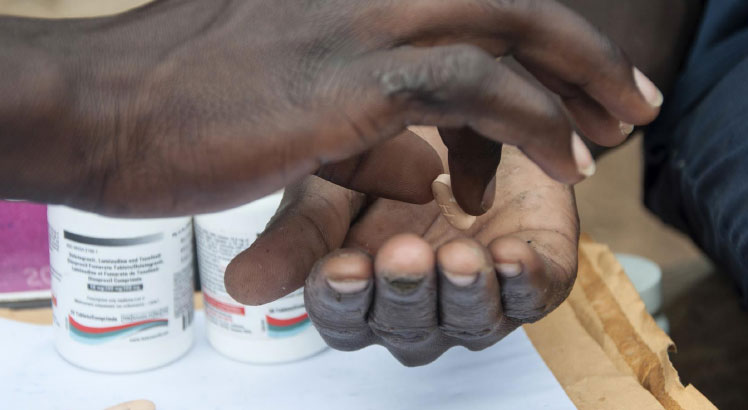Keeping patients with mental disorders on HIV treatment
A woman disguised as Fiona was a curious case for staff and community health workers at Chambe Health Centre in Mulanje District.
She was an antiretroviral therapy (ART) client who had transferred from Kambenje Health Centre in the hilly district.
From time to time, the woman living with HIV would visit the healthcare centre to collect her supply of medications for the next three months.
However, it appeared that almost every month, she had to return to refill her life-prolonging drugs that not only ramp up body defences to deadly opportunistic diseases, but also reduce one’s viral load to the extent that it cannot be detected.
Further investigation by the healthcare workers showed that she was mistakenly taking the drugs three times daily instead of the prescribed one.

“We approached her mother and asked her to assist us in looking after her, by ensuring she takes one tablet a day at the right time,” explains Zione Mphepo, a mentor mother for the area.
She is one of the volunteers who work with the Mother2Mother programme to ensure everyone with HIV know their status, starts taking treatment on time and consistently to enjoy healthy and productive lives.
For a while, it seemed that the problem had been solved.
By and by, however, they realised that she still reported to the clinic before her appointed time and there were signs that she had relapsed.
Mphepo recalls: “When we investigated the matter, we realised she was sharing her drugs with her husband, who hadn’t been tested and doesn’t know his status.
“We have tried to persuade him to get tested and be prescribed proper medicine if need be, but he has refused.”
Holding a meaningful conversation with Fiona, who is struggling with mental illness, was not easy. She would only respond to leading questions with a halting ‘yes’ or ‘no’. It is an experience Mphepo is all too familiar with.
As the volunteer explains, no one knows when Fiona was diagnosed with HIV, the virus that causes Aids. However, healthcare workers assumed that it was when she became pregnant with her youngest child a year ago.
Fiona has two other children, aged 12 and four, with her husband.
She never misses a hospital appointment, even for her child’s under-five clinic.
Whenever her drugs run out, which is frequent because of her husband’s actions, she almost always comes to the hospital.
Her mother and elder sister support her, ensuring the children’s needs are met and that she takes her medication consistently.
Josephine Njowe, site coordinator for Mother2Mother at Chambe Health Centre, says Fiona is one of four individuals with mental illnesses and on HIV treatment. Two have babies.
From April to September this year, Unicef supported Mother2Mother to implement an emergency response to the devastating impacts of Cyclone Freddy which disrupted access to health care, treatment and support, including ART.
Under the project, Mother2Mother identified vulnerable populations, including people living with HIV, and referred them for testing, treatment and other life-saving services. The initiative re-initiated clients on ART and provided adherence counselling for retention in care.
It also supported access to critical maternal and child health, development and social services as well as created demand for and facilitated access to sexual and reproductive health services, including family planning and addressing reports of violence and neglect for adolescent girls and young women.
Mother2Mother is a non-governmental organisation dedicated to preventing the transmission of HIV from mothers to their children.
They also support individuals with special needs like Fiona who face a higher risk of passing on the virus to their little ones, Njowe explains.
“We go above and beyond to provide special treatment to such people when they come to receive their medicine,” says Njowe. “We offer counselling on the importance of taking their medication diligently and provide valuable advice on caring for their children.”
The mentor mothers continue to support their clients, ensuring they adhere to their medication schedules and replenish their doses as required.





